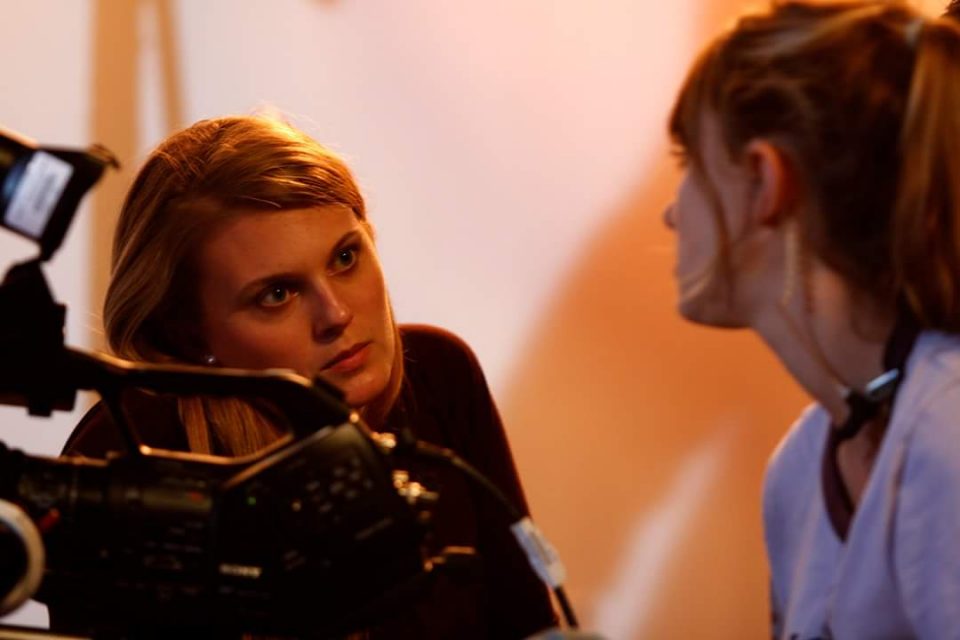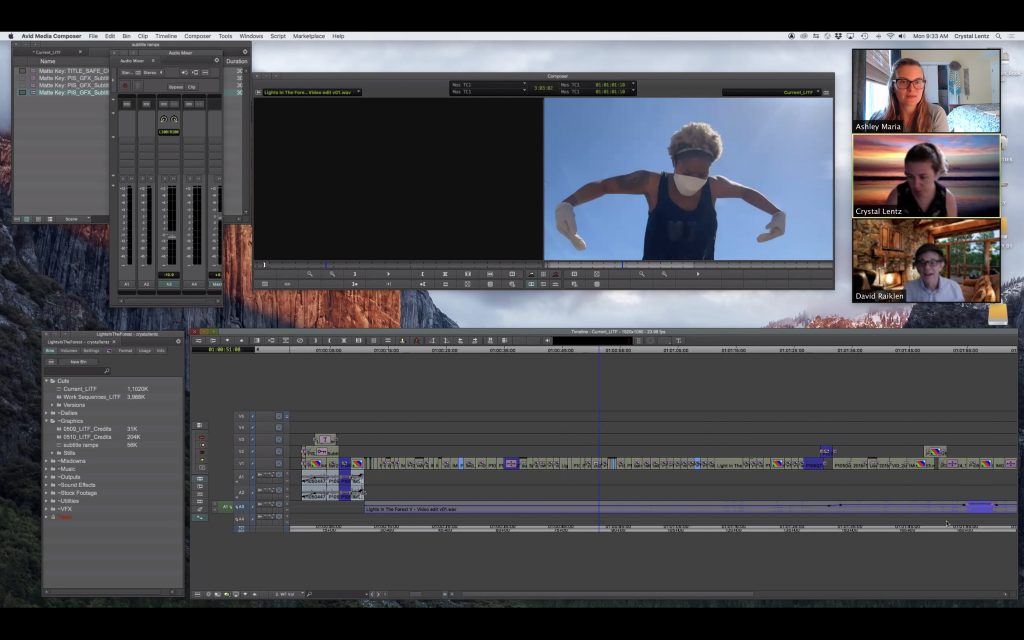Did a filmmaker ask you to give them notes on their film project? Or, did you ask others for notes on your film? Read on for advice on giving and receiving notes – it’s a skill!
I’ve asked a lot of people for feedback on my films, and it can be a very vulnerable experience. I mean, I’m asking someone to judge something I’ve worked very hard on, but I know it will only make the project better.

The real reason a filmmaker is asking for notes is to see if there is something glaringly bad/weird/strange that they or their team just didn’t notice because they’ve seen it so many times…They also want to know if their goals with the piece or the story are in fact coming across!
For example, when we hear something like “this shot bumped for me,” or “I was confused by this moment,” then we must take a look at that section. This is especially prevalent if this note is repeated about the same area of the film – time to open it back up to figure out what’s going on.
Insider secret – sometimes if a moment or a scene isn’t working, you may need to actually look at the scenes immediately before it to see if there’s a problem there. Maybe the payoff isn’t working because it isn’t set up well enough?
And, often people will give us filmmakers their own ideas on how to fix a problem. So we smile, take it in, and go back to our own drawing board. No disrespect to the note – I mean, we asked for it. It’s just that sometimes notes can be a reflection of what someone else would do with the footage, or maybe it’s just their personal take based on their past personal experiences (for example, I am very hyper aware to gender bias – so this is included in all of my feedback – it’s up to the filmmaker to decide if this is important to them, too…but, it better be…). The important thing is to use the notes process of filmmaking as just that – a process. It’s a stage of post-production you must plan for.
So, the secret to receiving notes is to hear all of those notes and ideas, and then take away what works best for you and your vision. Sometimes I like to ask people for feedback and tell them nothing about the piece, so I can get their honest first reaction. Other times, if I know this person is familiar with the piece, I will tell them my goals and ask if they feel it’s coming across (and then ask their suggestions for making it better).

Never take notes personally! I’ve received some very painful notes in the past: “I honestly don’t know what’s going on here” “It feels very claustrophobic” “I find the main character very self-serving” (the main character was me – don’t worry, we fixed that). Ouch, right? We’re putting ourselves out there, people! This is the thick skin part, and frankly, this is what sets us apart. We’re putting ourselves out there and willing to do it again and again. [Look out for a Blog post I’m currently writing on handling rejection…on a daily basis!]
Back to the art of giving notes — Just be honest. You can try that compliment sandwich (good note – constructive note – good note), but we all know what you are really doing…tell us what you like, what’s working for you. And, then tell us what bumped for you. Yes, “bumped.” Best word for this. Then tell us what questions you have while watching the film or you have after watching it. You can try to figure out our intention or try to figure out solutions, but wait for an actual notes call to do that. Oh! And always, always, include timecode or timing of where the moments are you are referencing. Do NOT leave it to us to figure out ‘that one shot that took too long.’ Oh no. Please don’t do that.

Then, we will take those notes and work through them. We will go to our team to ask their interpretation of the notes. Maybe we’ll even ask you to get on a notes call to specifically ask what you meant by certain things. When I’m on a notes call for a colleague, I usually ask questions of their intentions in order to offer suggestions or ideas for editing. Sometimes, just helping a filmmaker think outside the box or brainstorm can get them to come up with other solutions for a scene. But, do keep in mind, we will not normally be next to someone while they watch the film to explain our intent of certain scenes, stories, or shots, so we must rework a scene until it is truly saying what we want it to say.
And, I beg of you – refrain yourself from saying “make the movie you want to make!” Sure, but if the whole audience is dumbfounded while watching it, was that really the message I wanted to send? If so, then great, but it’s likely not.
Yep – there you have it! The art of giving & receiving notes. As always, you can “take ’em or leave ’em!”
Do you have any notes to add to this post? I promise to not take it personally…
Comments are closed.